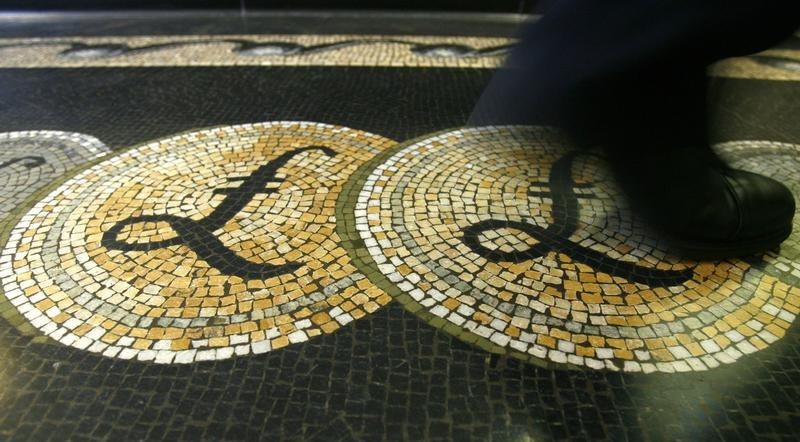Investing.com - Sterling fell to session lows on Tuesday after data showing that the U.K. avoided slipping into negative inflation in March, but consumer prices remained flat due to cheaper food and energy costs.
GBP/USD was down 0.4% to 1.4616 from around 1.4658 ahead of the data.
The drop in the pound came after the Office of National Statistics reported that the annual rate of consumer inflation remained unchanged at a record low zero in March, unchanged from the previous month and in line with forecasts.
The ONS said that March’s consumer prices index actually dropped by 0.01%, which it rounded up to zero.
Consumer prices rose 0.2% from a month earlier, in line with forecasts, following 0.3% increase in February.
Core inflation, which strips out volatile food and energy costs, slowed to an almost nine-year low of 1.0% last month from 1.2% in February. Economists had expected underlying inflation to remain unchanged.
The ONS also said the retail price index slowed to 0.9% in March from 1.0% in February.
House price inflation slowed to 7.2% in the 12 months to February from 8.4% in January.
The Bank of England targets inflation of 2% but the recent slowdown in inflation is unlikely to prompt a monetary policy response.
Last month BoE Governor Mark Carney said policymakers were "looking through" the current period of low inflation because it was driven by a 50% fall in oil prices since last June.
Sterling was also lower against the euro, with EUR/GBP at 0.7216 from around 0.7189 earlier.
